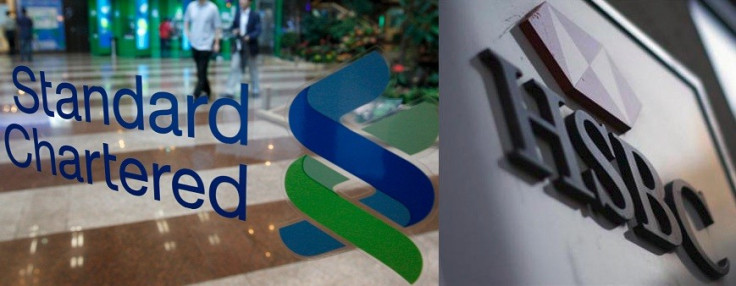South Korea Investigates Standard Chartered and HSBC for Money Laundering

Korea's financial regulator, the Financial Supervisory Service (FSS), revealed that it is will investigate the Seoul branches of Standard Chartered and HSBC following money laundering allegations against both banks by different regulators in the US.
According to the Financial Times, a spokeswoman for FSS said that while there were no specific grounds to suspect wrongdoing by the banks' Korean branches, the probes were derived entirely from developments in the US.
She added: "The regulator would review the banks' responses to preliminary written enquiries before visiting their offices around the end of this month."
A Standard Chartered spokesperson said, "We are in regular dialogue with our local regulators on all relevant matters, and we will cooperate fully with the FSS. Standard Chartered PLC, including Standard Chartered Bank in Korea, takes its responsibilities very seriously, and seeks to comply at all times with the relevant laws and regulations. We would also like to note that the Group strongly rejects the position or portrayal of facts as set out in the order issued by the New York State Department of Financial Services."
Legal experts in the US and Europe told the IBTimes UK that Standard Chartered may face further investigations - and possibly charges - following New York state's filing against the bank for allegedly hiding at least a quarter of a trillion dollars worth of transactions tied to Iran. New York has also threatened to take away the bank's US banking licence.
"Everyone is expecting that if the New York state Department of Finance is filing [charges] against Standard Chartered, and one can presume they possess significant evidence, one would expect the federal government also to file charges eventually," said Marc Greenwald, partner at Quinn Emanuel who specialises in complex commercial litigation and defence of government investigations.
Greenwald who, in recent years, specialised particularly in representing foreign companies engaged in litigation in courts in the United States, has also previously worked as a federal prosecutor.
"There are multiple jurisdictions that regulate banks in the US; both on the state and federal level," said Greenwald. "The New York State Department of Financial Services filed the charges against Standard Chartered, stemming from activities related to federal sanctions preventing most transactions with Iran. The state prosecuting Standard Chartered would likely be the first step in a bigger case.
"The fact that the state regulator is charging the bank under state regulations doesn't prevent the federal government from also filing criminal or civil charges against the bank."
Standard Chartered CEO Peter Sands hit back at the New York State regulator by saying that the bank had not broken US sanctions and that he saw "no grounds" for revoking the lender's licence.
In his first public comments since the allegations were made, Sands said: "We reject the position and portrayal of facts by the Department of Financial Services [DFS]."
HSBC sets aside $2bn
Meanwhile, HSBC said it was setting aside $2bn to cover US law enforcement and regulatory costs and compensation for UK customers for mis-selling derivatives.
In tandem with six separate probes into the manipulation in London Interbank Offered Rate (Libor), HSBC has been embroiled in money laundering probes and convictions in the US.
HSBC's head of compliance David Bagley told a US Senate committee that he would step down after investigators released a damning report detailing more than a decade of lax controls and linking Britain's biggest bank to money-laundering, terrorist funding, tax evasion and financial ties to Iran that violate US sanctions.
Speaking at the US Senate Permanent Sub-committee on Investigations in mid-July, Bagley said: "As I have thought about the structural transformation of the bank's compliance function, I recommended to the group that now is the appropriate time for someone new to serve as the head of group compliance. I have agreed to work with the bank's senior management towards an orderly transition of this important role"
The Senate probe also laid heavy criticism on HSBC's prime US regulator, the Office of the Comptroller of the Currency (OCC), and warned HSBC that it would consider revoking its charter to operate in the United States.
The 335-page report by the US Senate permanent subcommittee on investigations, which draws from 1.4 million documents and interviews with 75 HSBC officials, describes a "pervasively polluted" culture and a "dramatic failure of accountability" at HSBC, according to Senator Carl Levin, the committee's ranking lawmaker.
HSBC was not immediately available for comment when contacted by IBTimes UK.
© Copyright IBTimes 2025. All rights reserved.






















